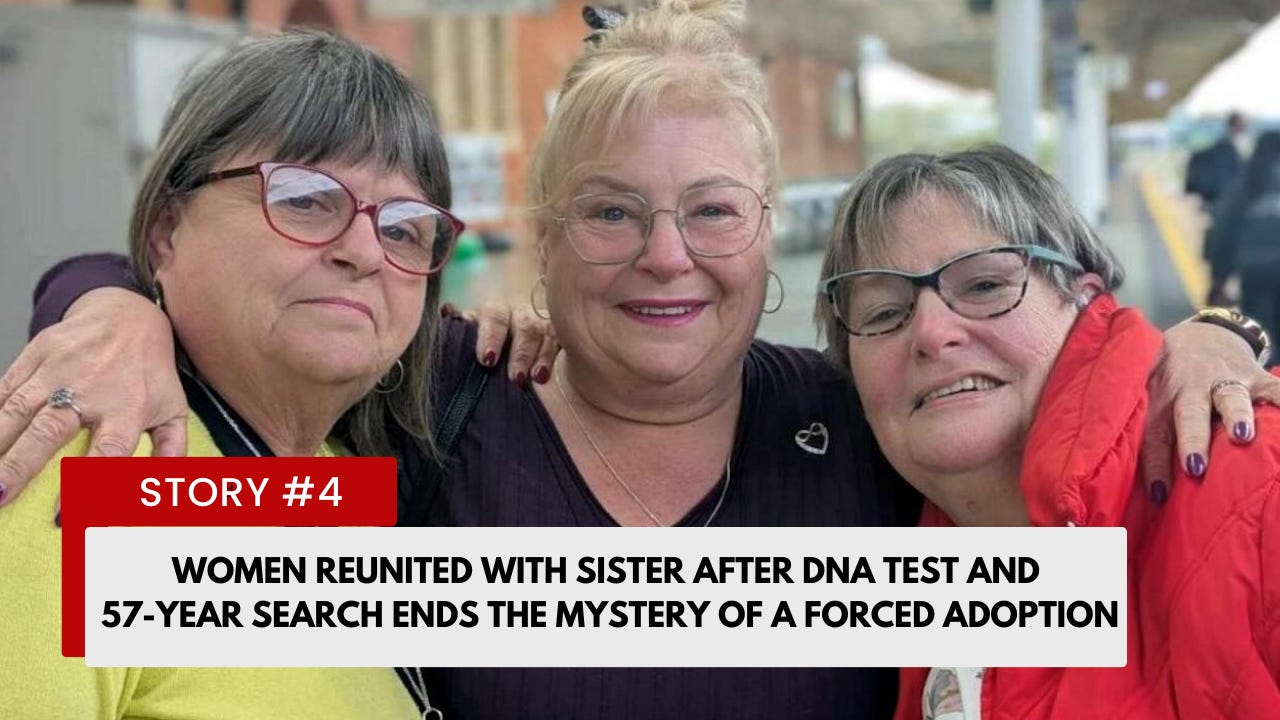

LANSING, Mich - Michigan residents and small business owners targeted by the Whitmer administration got a long-delayed chance to speak on April 23 as the Republican-controlled state House held its first hearings on government overreach during the COVID lockdowns.
Two business owners and a lawyer described how they were targeted by Attorney General Dana Nessel, the Whitmer administration, and local government at the House's Weaponization of State Government hearing.
Gov. Whitmer declared barbers and hairdressers “nonessential” in 2020. Six barbers and hairdressers defied the lockdown orders and were criminally charged for cutting hair at the Michigan Capitol on May 20, 2020. Click here to read more.

KIMBALLTON, Iowa - A water tower malfunction is forcing people in the western Iowa town of Kimballton to use bottles.
City officials have told residents it could be a while before the problem is fixed.
When Pat Crosley turned her faucet on, it was a shock.
“I thought maybe the radishes were leaking into the water, and then I realized it was actually coming out of the spigot, and so I was surprised that the water was pink,” the Kimballton resident said.
Officials said there was a problem with filters. Now, more than 200 people in town have to drink bottled water.
“You know, we never realize how much water we use,” Paul Christensen, another Kimballton resident, said. Click here to read more.

LOS ANGELES, CALIF - I have spent a lot of time covering psychiatric drugs like SSRIs. The problem with these drugs is that they’re incredibly potent, potentially dangerous, and they effect the mind in ways that the doctors prescribing them don’t fully understand. And all of these problems are compounded by the fact that they are increasingly easy to obtain. In fact, as the problems with psychiatric medications become more evident, the barriers to access them only become lower. It seems that things should be working the opposite way. But that’s how it goes now. If you want to get a highly potent, dangerous, mind altering drug, you can. In fact, you probably don’t even have to leave your house.
This trend is becoming more and more common with an ever increasing array of drugs. They are very easy to get, there is very little oversight, and you don’t have to leave your house to obtain them. This is a major problem that will require all kinds of legislation to fix. But there are some steps we can, and must, take immediately to address the problem of fraudulent, life-altering drugs being handed out in large quantities to young people, basically on demand. One of those steps is to defund some of the largest distributors of these life-altering drugs, which is something that should’ve happened a long time ago. Click here to read more.

Two women found their long-lost sister after a 57-year search thanks DNA test results that sounded like an ‘April Fools prank’.
Now in their 60s, sisters Trish and June spent their lives searching for their oldest sibling, Geraldine, who is more than a decade older.
Geraldine was a four-year-old when her mother Mary Wills was forced to put her up for adoption by a religious order of Catholic nuns in the convent where the single mom and her daughter spent their early years.
Mary moved on and later met Peter Wills, with whom she had three children after marrying in 1956, settling in Somerset, England.
Despite always knowing they had an older sister, Trish and June weren’t able to find her before their mom died from liver cancer in 2011.
When Trish gave her daughter, Laura, 34, an Ancestry DNA test for Christmas in 2023 it didn’t turn up any matches—until last month.
Little did they know that their biological half-sister Geraldine would upload her details onto the same website database and Laura would be notified that Ancestry had uncovered a match “without a doubt”.

WASHINGTON D.C. - The State Department had revoked about 1,500 visas throughout the United States as of late April, Inside Higher Ed estimates. Immigration and Customs Enforcement has investigated some of them, and some visa holders will be asked to leave or be deported if they have broken the conditions of their student status per U.S. immigration law. A small number may be deported if the secretary of state, Marco Rubio, deems their presence detrimental to U.S. foreign policy.
Two professors at Cornell and Yale claimed in The Washington Post that “our foreign students are terrified, and they’re right to be.”
Please. No foreign student who is obeying the conditions of his visa and staying focused on his studies has anything to worry about.
Who else should worry? Yale professors such as Erika and Nicholas Christakis, who treat students as adults, only to then deal with tantrums and Ivy League cancel culture. Click here to read more.



















